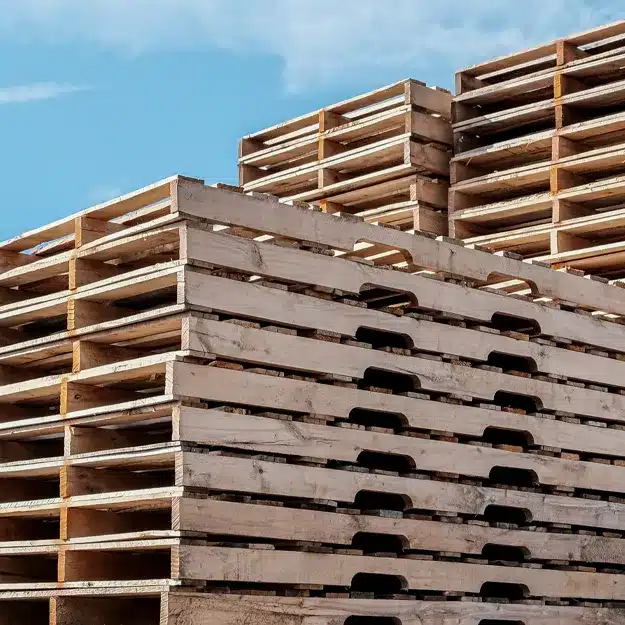In the fast-paced world of transportation, efficiency and order are paramount. One asset that has revolutionized the manner goods are delivered and kept is the timber pallet. These sturdy structures have become vital in warehouses and loading docks, offering a trustworthy solution for transporting goods seamlessly from one site to another. Their versatility enables companies to improve their processes, ensuring that stock is stored in a way that makes the most of space while allowing for simple accessibility.
Timber pallets serve as the core of modern logistics, streamlining the management of goods and contributing to the overall effectiveness of supply chains. By providing a uniform base for piling and transporting items, they reduce the risk of loss and improve the process of unloading and unloading. As we explore the wonder of loading docks and the role of pallets within them, it is obvious that these modest wooden structures play a vital part in changing the logistics landscape.
A Versatility of Wooden Pallets
Wooden skids are a fundamental component in the transportation sector, valued for their durability and flexibility. These structures are engineered to hold various types of freight, from bulky machinery to fragile items. Their natural strength allows them to handle significant weights, making them ideal for depot use and interstate shipping. This flexibility guarantees that businesses can maximize their supply chains without the need for different types of lifting equipment.
In more to their load capacity, wood pallets are a sustainable option, often made from renewable resources. Many companies are increasingly concentrating on eco-friendly practices, and using wood pallets aligns well with this objective. Recyclable and recyclable, these pallets minimize waste while providing an effective means of transporting goods. pallets in tulsa in different sizes and styles further enhances their capability, allowing companies to opt for the appropriate pallet to meet particular shipment needs.
Furthermore, wood skids can be tailored for particular applications, enhancing their function in multiple industries. Companies can readily change the structure, such as adding heat treatment to meet international shipping regulations or altering dimensions for unique products. This level of customization ensures that wood pallets continue to meet the changing demands of logistics and supply chain management, making them an crucial tool in today's transportation practices.
Benefits of Using Timber Pallets
Timber pallets are a staple in the logistics industry due to their durability and stability. They can support substantial loads while preserving structural integrity, making them ideal for transporting various goods, from manufactured products to perishable items. The inherent sturdiness of wood allows these pallets to withstand the rigors of loading and unloading, reducing the risk of damage to the products they carry.
Another significant advantage of timber pallets is their cost-effectiveness. Compared to options like plastic or metal, wooden pallets are often offered at a lower price point. They can also be fixed and reused multiple times before reaching the completion of their useful life, which provides additional savings for companies. Using wooden pallets promotes efficient operations without sacrificing quality.
Additionally, wooden pallets are eco friendly. They are made from sustainable resources and can be recycled or upcycled once they are no longer functional. This eco-friendliness aspect appeals to companies seeking to reduce their environmental footprint. By choosing timber pallets, businesses not only enhance their supply processes but also contribute to a more sustainable supply chain. spintax ### Advances in Pallet Design

The supply chain sector has seen noteworthy advancements in pallet design, especially with the emergence of enhanced wooden pallets. These pallets are crafted from blended substances that combine timber strands and synthetic resins, resulting in a lightweight yet robust alternative to traditional wooden pallets. This development not only enhances durability but also minimizes the ecological footprint, as such products can be made from salvaged substances. The ability to withstand intense logistics operations while maintaining build quality makes engineered wood pallets a significant advancement in logistics.
In addition, another noteworthy advancement is the integration of smart technology into pallet design. Pallets equipped with radio-frequency identification tags and tracking systems can provide live tracking of inventory, ensuring accurate and optimized logistics management. This technology allows organizations to keep tabs on the status of their goods throughout the supply chain, lowering losses and maximizing storage space. As companies continue to seek optimizations, these smart pallets are becoming an integral component in modern logistics.
Finally, the focus on eco-friendliness has led to new designs that promote sustainable pallets. Organizations are now utilizing pallets designed for repeated use, minimizing the need for one-time packaging. This strategy not only cuts costs but also supports a sustainable economy. By adopting eco-friendly materials and designs, businesses are not only enhancing their operational efficiency but also contributing better environmental practices within the logistics sector.
